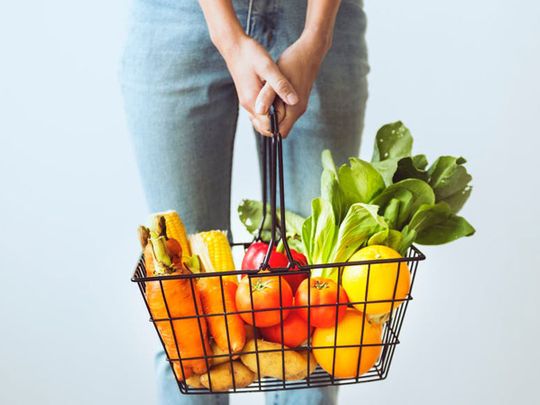
We are confused. Eggs are good. Eggs are bad. Meat is good. Meat is bad. Eat butter. Don’t eat butter. Coconut oil is good for you, then suddenly it’s not good for you. What should we believe?
The truth is, what you should or should not eat all depends on your body. Because you, at a cellular level, are not the same as anyone else out there. The new approach to healthy eating is not a one-size fits-all. Everyone has a unique genetic make-up, health history, lifestyle and mental well-being, therefore you need to really dig into who you are with a professional and customize a life that will serve your body as a whole.
But there are three things that all doctors and clinical nutritionists that I’ve ever spoken to agree on:
- Sugar is the main enemy
- Not all calories are the same
- It’s not only about how you eat, it’s also about how you live, because everything in your body is connected
- Intermittent fasting is amazing
My most recent conversation took place at the Chiron Clinic with Farah Hillou, a licenced nutritionist, registered dietician and a certified practitioner of functional nutrition.
What is Functional Nutrition?
Functional Nutrition is a systems biology based approach that focuses on identifying and addressing the root cause of illness. Her goal isn’t to make you thin. Her goal is to find out why you are tired, why your gut isn’t healthy, or why you can’t sleep at night. She asks you whether your insides are inflamed. Are you eating enough colour (not skittles, but vegetables) and generally how you feel overall? Functional nutritionists check that your liver is doing what it should be doing. Are your kidneys functioning properly? Do you need to eat less meat, drink more water? Do you need more sleep? Do you need more movement?

There are toxins everywhere these days. Our mattresses, our cars, what we eat, and the creams we put on our skin, the pools we swim in. It’s why I see so many more chronic diseases that are a result of lifestyle. Genes of course always play a role, but the way you live and what you eat, plays a major role in whether or not you can get sick
All of those things conspire to change your internal balance.
Conventional medicine is a lifesaver when it comes to treating acute conditions.
Acute conditions are severe and sudden. This could describe anything from a broken bone to an asthma attack, a fever, an allergic reaction. You need a doctor.
While functional medicine is a great way to treat chronic conditions like arthritis, diabetes, high blood pressure. Things that you can have for a very long time.

What are the biggest killers?
The biggest killers out there are Heart Disease, Type 2 Diabetes, Alzheimer’s, Strokes...These are all related to diet. There are other factors involved like stress, lack of exercise or toxins, but by far the biggest contributors to those chronic illnesses is bad food.
“We want to look at the root cause of issue. And I like to look back as far as I can. From when they were kids, I ask people what their habits were. What did they eat? Where did they live? Looking at everything that a person did and does to this day, helps paint a clear picture of what they might be going through right now” said Farah.
She was inspired by the famous Dr Mark Hyman, who is the Medical Director at Cleveland Clinic’s Centre for Functional Medicine. He is dedicated to tackling the root causes of chronic disease by harnessing the power of Functional Medicine to transform healthcare. In his book “What the Heck Should I Eat” he talks about the idea that food was the reason we got sick, but food can also be the thing that saves us.

In every chapter, he tackles the different food group and what he said about grains was incredibly insightful.
“For many years, we have been told by experts to eat lots of grains. In the infamous 1992 Food Pyramid, we were told to eat 6 to 11 servings of bread rice, cereal, and pasta every day! And we listened… and it turned America into the “Fat Nation” with 70 per cent of the population now overweight.”
As he discusses in Food: What the Heck Should I Eat? whole grains can be a great source of vitamins, minerals, and fibre. While they taste pretty good, the high amounts we eat, contribute to obesity, diabetes, heart disease, cancer, and dementia. And most of the grains we eat, even whole wheat, are turned into flour products which have a higher glycaemic index than table sugar! In general, we need to recognize grains for what they are—an occasional treat, not a staple.

Farah explains that many people will come to her with weight loss as their main goal. “I look at that as secondary,” she said. Instead of giving them a diet plan, she probes further. What has caused the weight gain? Is it the food you eat? Is it the lack of sleep? Are you stressed? "Most people who come to me and who want to lose weight, will have at least three other symptoms as well. Inability to sleep, feeling tired, can’t breathe properly etc. I tend to focus more on those. When we tackle those issues, the weight tends to just come off. It’s a by-product,” she told Gulf News.
And the other people come to Farah usually complaining about bloating, gas and general abdominal issues. Most of our symptoms are linked to what we eat and what we are exposed to. “The other thing I see a lot is people complain of chronic fatigue. So we ask why? Why isn’t your body feeling rested?” she told Gulf News. It's mainly your diet, secondary your lifestyle.
Calorie in and calorie out
There is a problem with the 'calorie-in and calorie-out' philosophy. Because not all calories are the same. Many people look at a number and think. “Ok, as long as I don’t eat more than 1,200 calories or 1,500 calories, I’ll be fine." But that isn’t true. You could have fast-food for breakfast, lunch and dinner, and still stay under 1,500 calories, but at a cellular level, no you aren’t fine.
“You need to think about the nutrition. If you have a glass of soda vs. the same amount of calories of broccoli, what both do in your body are completely different. The canned soda is going to shrink your brain, spike your insulin and if you drink it continuously, it will make your body store fat, in addition to the fact that you are adding spoonful’s of sugar into your diet. The broccoli is a powerful antioxidant, it feeds your cells, unlike the soda. Calories in and out is not the whole picture.
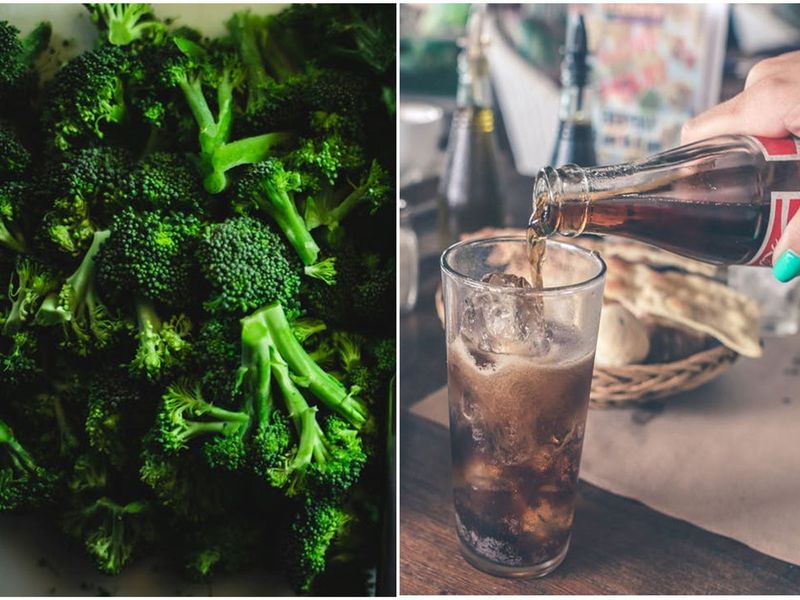
Calories change your biology. We need to understand that food can be used for both good and bad and that quality is what really matters. It is about what you eat, not how much. It isn’t about deprivation or restricting yourself too much.
Sugar is the worst

Sugar is nothing more than empty calories. Worse than that, sugar is devoid of any nutrients, your body has to use the essential nutrients stored in your system to digest the sugar. So, not only are you getting absolutely no vital vitamins and minerals from the sugar, but your body is also losing valuable nutrients just by eating it.
Moreover, sugar can also increase the risk of heart disease, type 2 diabetes, obesity, Alzheimer’s and cancer (especially breast cancer).
When eating sugar, there is a rapid rise in your blood sugar level (blood glucose). Inevitably, your body responds by producing more insulin from the pancreas to deal with the high level of blood sugar.
The higher your blood sugar shoots up, the lower it crashes down soon after. At the drop, your body responds in two ways: first, it will send you off for a quick sugar fix (like a bar of chocolate) as an attempt to satisfy your cravings and in order to lift your blood sugar back up. Simultaneously, it releases stress hormones like adrenaline and cortisol from your adrenal glands and release your own sugar stores to try to correct the low level.
As a result, you end up on a perpetual roller coaster of highs and lows that affects your mood, makes you feel more anxious, tense and irritable because of the stress hormones that are being released, and can further result in weight gain, especially in the middle region of your body.
Whether you eat sugar in honey, in a doughnut or as fruit, the body sees sugar as sugar. However, if you are eating berries, rather than a doughnut, you get other nutrition into your body, like vitamins.
On Keto
It’s been scientifically shown to be an effective treatment on children with epilepsy. In that aspect, there is a lot of research to back it up. Where research is a little controversial, is when it comes to the average person, who doesn’t have epilepsy. They just want to lose weight. There isn’t enough research.
Keto means that 70 per cent of your calories are fat. Which seems a little crazy, to lose weight by eating fat. But it does in fact work.
Anything that incolves cutting out sugar and decreasing your intake of carbohydrates is a positive change. It’s a great short term solution, but there is not enough evidence to support being on keto for a long period of time.
On intermittent fasting
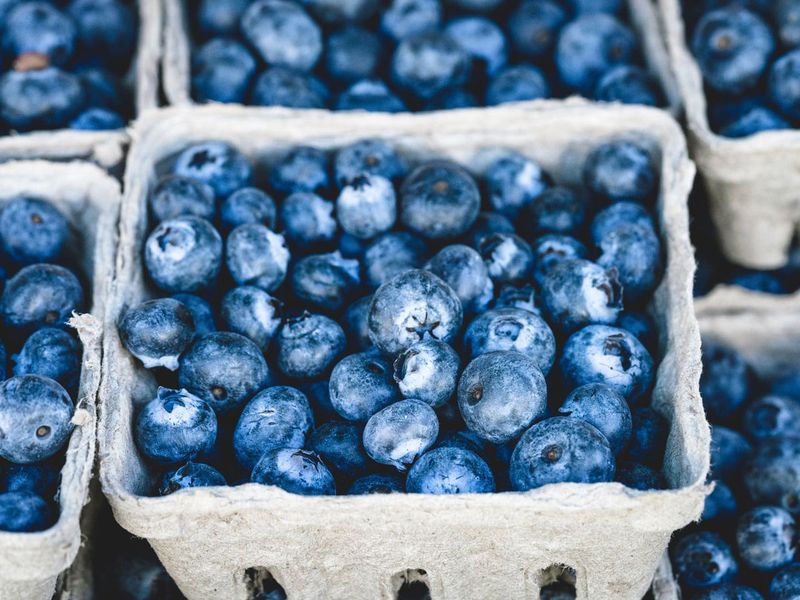
The ageing process, is your cells just getting damaged as you get older. So the body needs a recovery period every day between dinner and breakfast where we don’t eat anything at all. We shouldn’t eat too late at night or too early in the morning. We need that 14 hour period for our body to clean up the mess and to repair itself without any food entering our bodies. Intermittent fasting diets actually do much for your body.
They upregulate your stem cells, they clean up your immune system, they increase your antioxidants, they increase bone density and muscle mass. If you are overweight it can really help get you back to a healthy weight. It’s very powerful. When you fast, you shift from burning glucose to burning fat.
They upregulate your stem cells, they clean up your immune system, they increase your antioxidants, they increase bone density and muscle mass. If you are overweight it can really help get you back to a healthy weight. It’s very powerful. When you fast, you shift from burning glucose to burning fat.
So is there an ideal diet?
“I can’t tell you that. Everyone is fighting with each other. The vegans say they have the best diet, paleo eaters say they have the best diets, even people on a keto diet are saying they are the winners” said Farah.
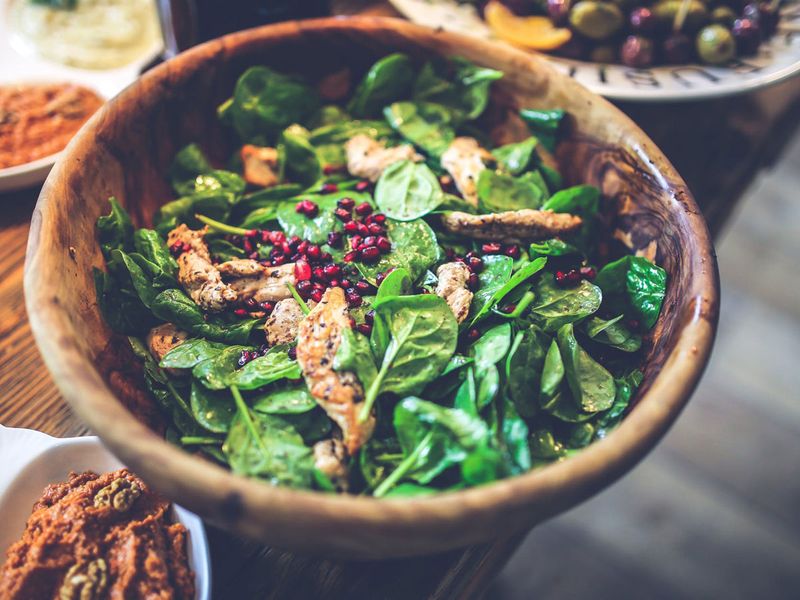
But not everyone can be right. So what is the truth?
Interestingly, according to Mark Hyman, there is a common ground and principles that are the same in all of these healthy diets.
What are the common principles that form the basis of sound nutrition, that are backed by science?
Here are a few rules to live by:
- We should all be eating foods that are low in starch and sugar. There is absolutley no doubt about that.
- We should be eating a plant rich diet. 70 per cent of the plate should be plant food. Good quality veggies that aren’t that starchy. Two serving of fruits and seven serving of vegetables. Do not overdo it on the fruit, there is a lot of sugar in fruit.
- Eat good fats: Salmon, avocados, nuts, seeds, coconut oil.
- If you need animal products, you should be eating humanely raised animal products and fish that’s sustainably harvested.
- Non-gluten grains are the best: Black rice, quinoa, buckwheat.
- Dairy, you should ideally eat less of. Dairy tends to cause inflammation in our bodies, so the best case scenario would be opting for almond milk or coconut milk. Sheep and goat milk is okay as well.
You need to eat the kind of foods that really nourish your cells. This gives you control to a certain extent over how long you’re going to live. You can avoid autoimmune conditions, heart conditions, hypertension, type 2 diabetes and so much more if you just pay attention to your eating.
"You need to take out all the inflammatory elements in your food. Try it for 10 days. Reset your biology. Take out all the toxic junk in your diet. Get off processed food and you will notice profound changes. Food caused the disease and food can cure the disease," Farah told Gulf News
The more toxic food you eat, the more you affect your taste buds. We need to re-train ourselves to eat real food again, rather than food-like products. If you cut out sugar for a week, you can eat a blue berry and enjoy its sweetness, but if you constantly drink soda, you numb your taste buds and everything just tastes like cardboard to you.
Look at your nutritional deficiency. You need a nutrient dense diet. Think about the density of nutrition in food before you buy it and eat it.
Vitamin D, Omega 3 fats, Magnesium, Iron, and Zinc. These nutrients are critical to all the functions in your body. Immune system, brain function and gut hormones all require these. Wheat, fructose corn syrup, and soy have no nutrients in them. The people who eat the most of these are the sickest.
So how do you find the right food?
Mark Hyman suggests to eat as local as possible. “Try and eat locally sourced food. Produce that has been grown in your country. Fruits and veggies that come from other countries are generally stored for months and even years” They travel such distances to get to your plate, but if you buy from your local farms, you should be great. Pick apples off the tree, grow broccoli in your back garden if you can and you will taste the difference. Try and make those changes. Just as you invest in a nice home and a nice car, your body is your home and spend a little more to feed it and nourish it.
Here is a simple green smoothie that Farah likes to make often 🍹
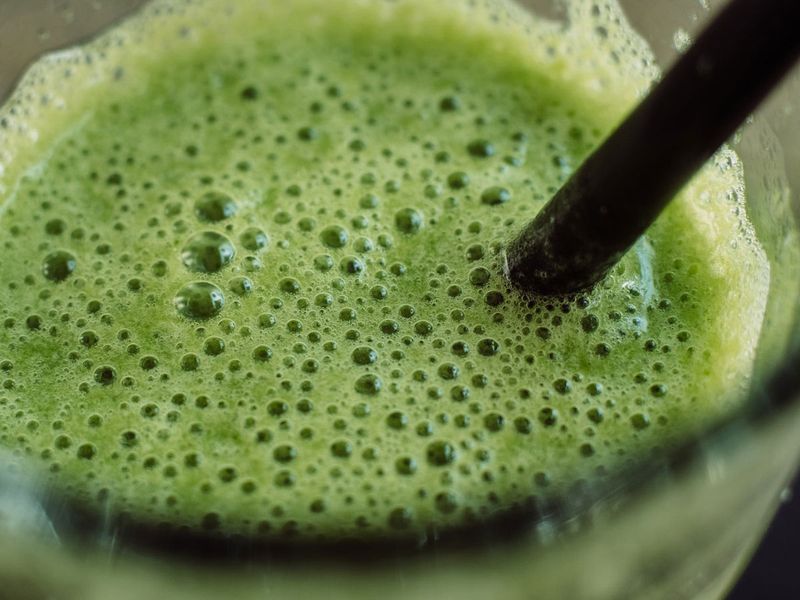
- 1 banana
- 1/4 cup organic blueberry
- 1/3 cup organic baby spinach
- 1/2 avocado
- 1/2 cup almond or coconut milk
- 1 cup water
- 1 teaspoon extra virgin coconut oil
- 1 teaspoon ground flaxseeds
- 1/2 teaspoon chia seeds
- Pinch of turmeric and cinnamon
- A dose of collagen peptides











